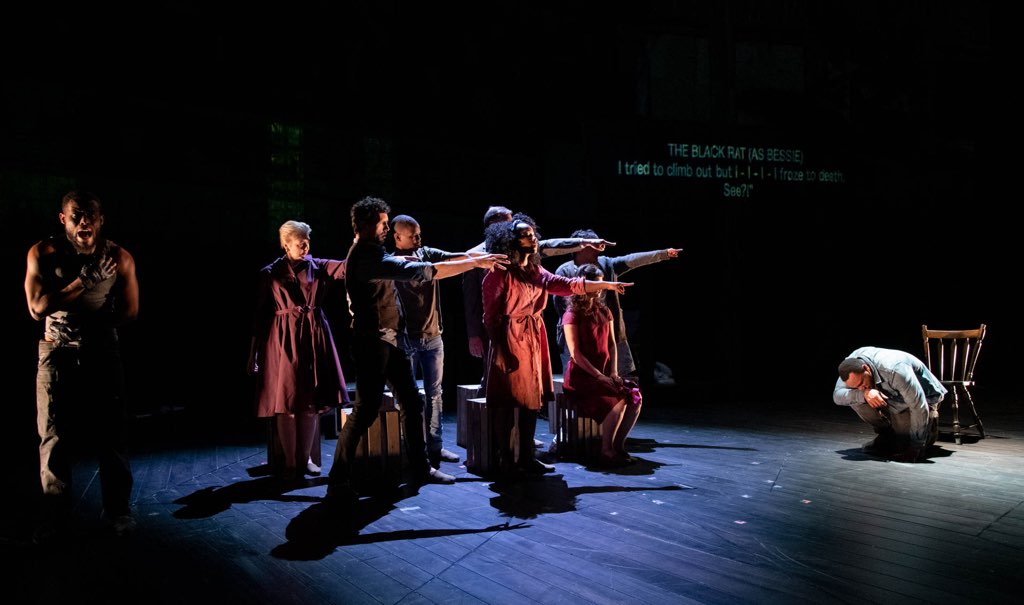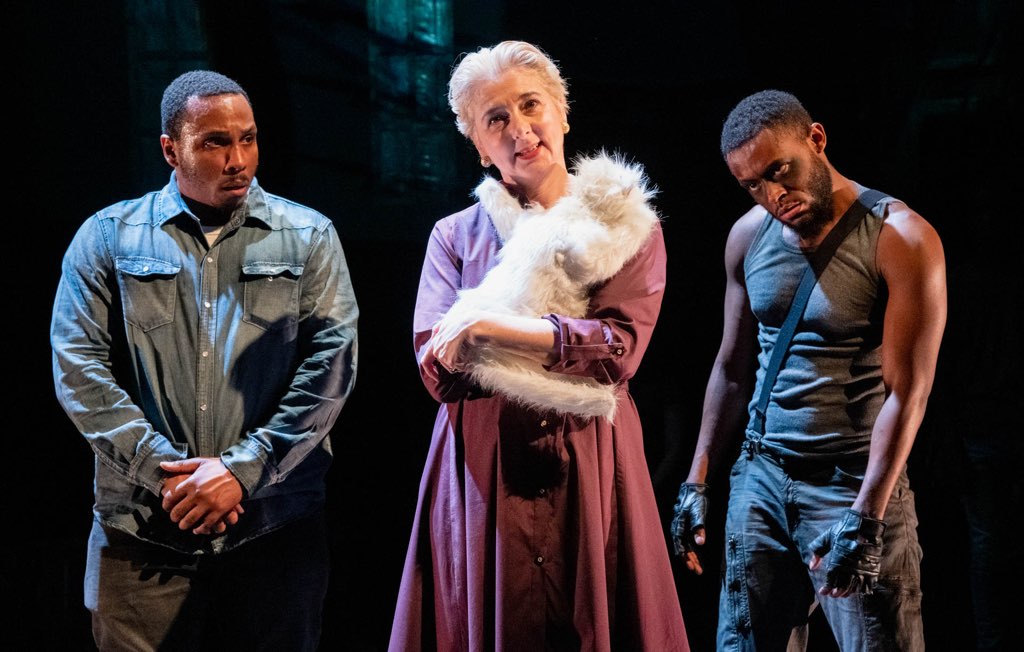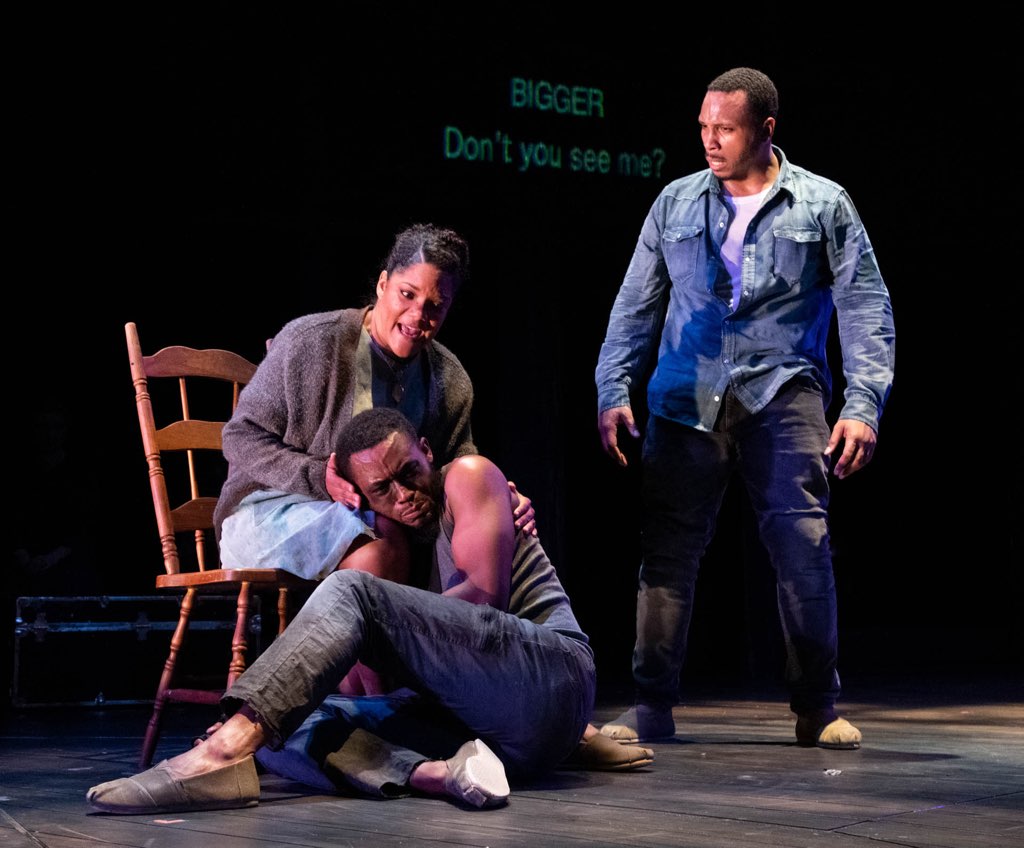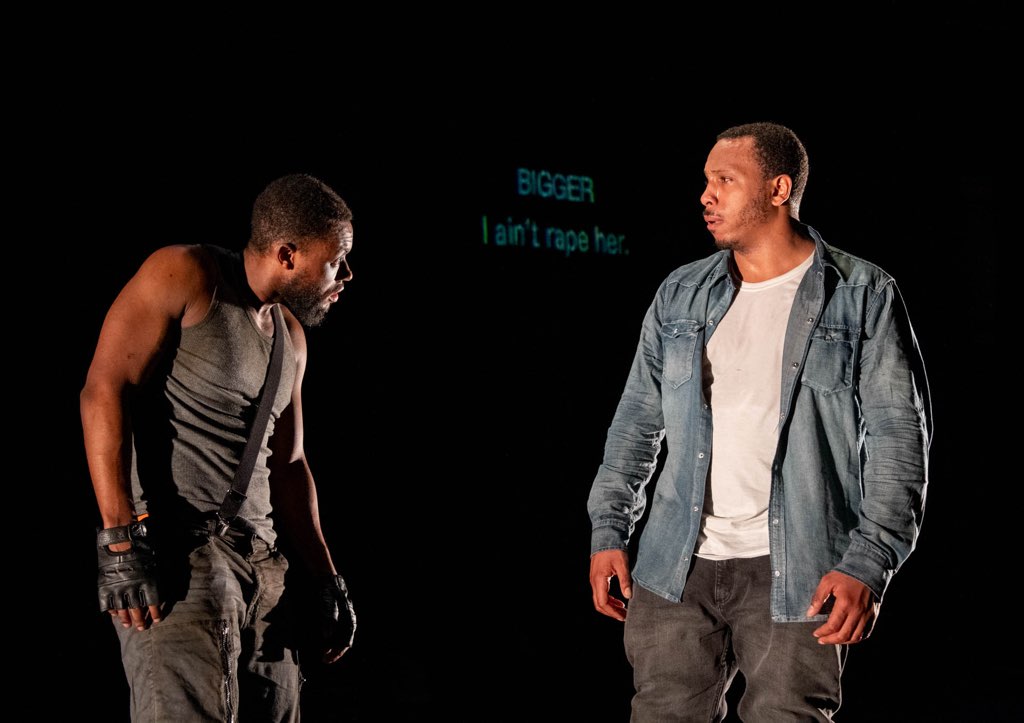When one has an overwhelming experience in the theater—as I did watching Native Son at Mosaic—it can take some time to process. This is especially so if the work is unlike anything one thought possible for theater to do.
For context, this is a passage from the review by my DC Theater Arts colleague Ramona Harper:
The play is a boiling cauldron of blistering raw emotion and free-form flights of fancy that open the sealed doors to the taut, jagged mind of a Black man and in doing so blast wide open the sealed windows of a nation that refuses to come to terms with its racist past. It exposes the warning signs that lurk therein and has a clear message for the divisions we are witnessing today.

Pointedly, the play—brilliantly distilled by Nambi E. Kelley from Richard Wright’s classic novel—is all about race in America. No scene, no line, no plot point is not about race in America. And this succinct experience will necessarily have a novelty for a white theatergoer that it may not for someone for whom life in America is about race day in and day out.
This unfamiliarity, aka privilege, is a liberty analogous to that which a man can have when he imagines he is in circumstances that are not about gender (even if they actually are). A woman, meanwhile, may be more likely to be mindful that inattention to gender dynamics is a luxury she cannot afford.
Though Native Son is set in Chicago the 1930s, its lens on white privilege is still lucid. “White folks don’t let us do nothing!,” says the main character, Bigger Thomas (Clayton Pelham, Jr). “They own the world.” The word they occurs often in the play and almost always means white people. For those who are they, this may take some getting used to.

In an inspired stroke of playwrighting, Kelley introduces a character not in the novel called Black Rat (Vaughn Ryan Midder), who gives voice to Bigger’s inner thoughts and dramatizes the split sense of self that white privilege exacts.
THE BLACK RAT: We all got two minds. How we see them seeing us. How we see our own self. But how they see you take over on the inside. And when you look in the mirror – You only see what they tell you you is. A black rat sonofabitch.
Theatrically the entire play takes us into Bigger’s mind. The setting by Ethan Sinnott is an abstraction of tenements and shards of shattered glass. Kelley’s scenes are structured as units of thought in Bigger’s mind, sometimes going forward in time and sometimes back. The dialogue is staccato. The scenes are short and taut. Each scene propels the action with a riveting tension, and each for Bigger is also a specific psychic event.

Typically a particular word at the end of one scene will be echoed at the start of the next. For instance, Bigger, in an interview for a chauffeur job, has just told his future employer, a wealthy white woman (Melissa Flaim):
BIGGER: They said I was stealing. But I wasn’t.
MRS. DALTON: Are you sure? They say you can drive a car. But if you steal –
Immediately lights come up on Bigger’s mother (Lolita Marie).
HANNAH: The only stealing you should be doing is for the Lord, Bigger.
(She sings.)
STEAL AWAY/ STEAL AWAY/ STEAL AWAY TO JESUS…
This pickup of steal is not wordplay, it’s free association: Bigger’s mind being reminded of something then something else then something else. The script makes dozens of similar leaps with pairs of words such as fire, stop, nervous, scared—seemingly random seams that go by imperceptibly. The effect is mesmerizing. It’s as though the free flow of scenes immerses our consciousness in the current of Bigger’s ineluctable fate. With each such subconscious link, we become more invested in how he thinks.
Psalmayene 24 directs the stylized staging with a breathtaking mastery of momentum and meaning. The tension in the storytelling never lets up. The figure of Bigger looms ever larger. His crises of inadvertent criminality cascade. His interior battles with Black Rat keep raising the stakes.

This is a powerful production of a provocative play that makes us privy to the conscience of a character whose fateful conflicts are a complex confluence of racist circumstance and bad judgment. How we weigh those two factors in calibrating Bigger’s culpability will necessarily be informed by our own circumstances and judgment. But of this there can be no question: Native Son at Mosaic stands as a must-see instance of theater’s singular ability to transcend identity and invite empathy.
Can’t wait to see next Psalmayene 24’s dramatized debate between Richard Wright and James Baldwin (Les Deux Noirs: Notes on Notes of a Native Son) and see how it connects.
Running Time: 80 minutes with no intermission.
Native Son plays through April 28, 2019, in rep with Les Deux Noirs: Notes on Notes of a Native Son from April 7 through April 27, 2019, at Mosaic Theater Company of DC performing at Atlas Performing Arts Center – 1333 H Street NE, in Washington, D.C. For tickets, call the box office at (202) 399-7993 ext. 2, or purchase them online.




